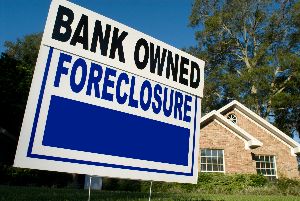What’s the Difference Between Bankruptcy and Foreclosure?

When faced with significant financial troubles, it can be easy to fall way behind on mortgage payments. While some lenders may be willing to work out a loan modification or short sale, others will simply start the process of repossessing the home. In this instance, you must decide whether to move forward with the foreclosure or file for bankruptcy. The following guide explains the difference between these two legal procedures so you can determine which is best for your situation.
Bankruptcy
Bankruptcy petitions are initiated by the debtor. Once the paperwork is filed in court, an automatic stay goes into effect preventing creditors from taking any further action to collect on delinquent accounts. This generally applies to mortgage lenders as well. In turn, you’ll be able to halt foreclosure proceedings and remain in control of your home until the case has been finalized.
Filing bankruptcy can give you extra time to get caught up on mortgage payments and save the property, or you may choose to surrender it to the lender. Should you opt to give up the home in this manner, the foreclosure will continue, but you’ll no longer owe the balance on your loan.
Although bankruptcy and foreclosure both negatively impact credit, a bankruptcy can often be easier to bounce back from. It provides a fresh financial start with little to no debt, which means it’s possible to rebuild your credit quicker.
Foreclosure

In contrast, the foreclosure process is begun by the lender in an effort to secure the money they’re owed. This allows them to take over control of the property in accordance with the terms of the loan.
In the event a foreclosure sale is completed on your home under these circumstances, you could still end up being responsible for paying the difference between the mortgage amount and the sale price. Only if the lender can get enough to cover the remaining mortgage payments, then you won’t have to pay anything else.
Foreclosures typically stay on a credit report for seven years, and most mortgage lenders will be hesitant to approve you for future mortgages during this time. It can also be more difficult to start rebuilding your credit when dealing with leftover mortgage debt.
If you’re considering bankruptcy to help alleviate your financial struggles, trust Arnold Law Offices to provide quality legal advice and guidance. Offering vast knowledge and experience in this area of law, these attorneys have worked with countless clients across St. Clair County, AL, to successfully achieve their debt relief goals. They’ll give your case the personalized attention it deserves while strategizing the most effective solutions for your unique situation. Call (205) 338-6565 to schedule a consultation or visit them online to learn more about their services.
About the Business
Have a question? Ask the experts!
Send your question

